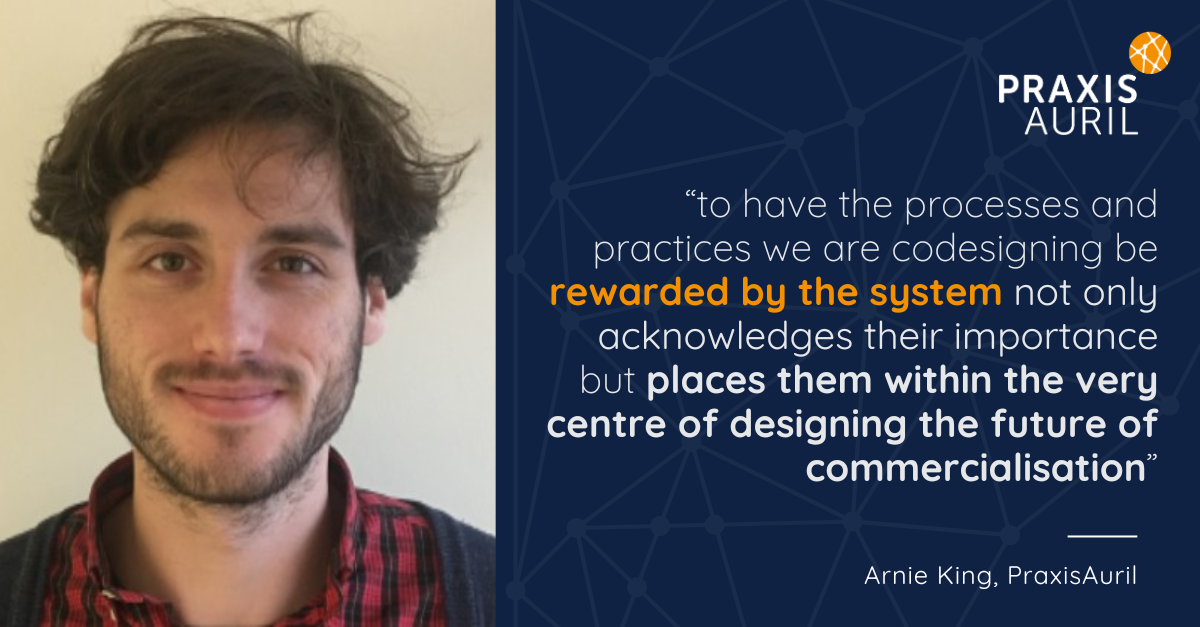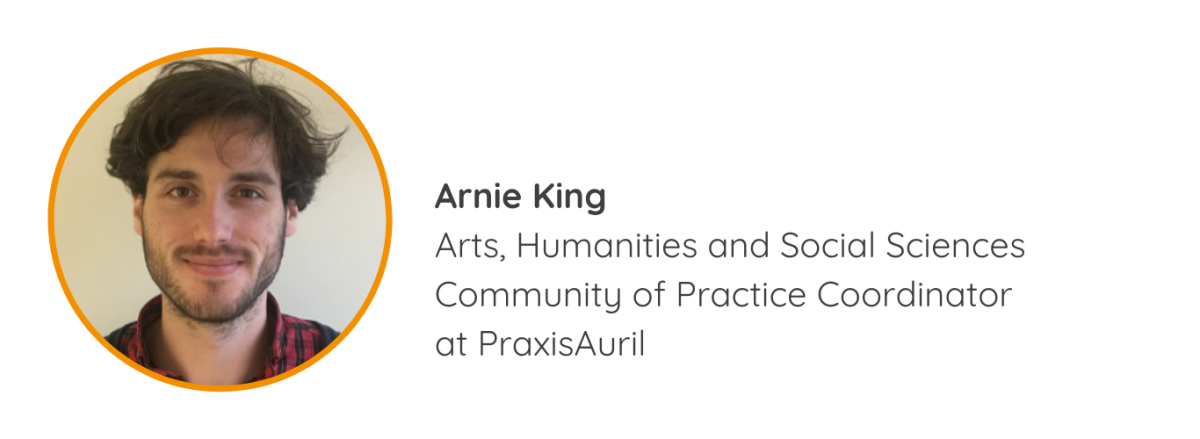
The Independent Review of University Spinout Companies has been released this week. While it is aimed primarily at the traditional STEM commercialisation context, it talks explicitly about Arts, Humanities and Social Science throughout and there are some very salient points that chime closely with the work of our Community of Practice (CoP). Here is a run-down of what it will mean for us as we codesign professional standards and practice for AHSS commercialisation and social venture building.
“Whilst the review focusses on science and technology, we note that the UK has particular strengths in the humanities, social sciences, and the arts, which have already shown spin-out capability. This presents the UK with a unique opportunity to build a world-leading innovation ecosystem that draws from all academic institutions and disciplines, and is more ambitious than a replica of Silicon Valley.”
-Independent Review of University Spinout Companies
The main aim of the CoP is to connect professionals from across the sector so that we are all working together to make practical, impactful outcomes a normal part of research in every discipline. It is crucial that the capacity and techniques to make this effective, especially in AHSS in its much more embryonic stage, are codesigned and shared equally. It is vitally important that this is not just a ‘nice to have’ for a small number of larger universities. We have seen our CoP grow very quickly and the engagement from across the sector is a fantastic marker for both its success and its need.
When we turn to the specific recommendations within the spinouts review, there are a number of topics and details that are encouraging to hear as it matches directly with conversations and themes that we are seeing as important in making the right changes for the sector.
a) Recommendation 2 focusses on registering spinouts and the HE-BCI data collection. There is a need for dedicated and effective monitoring of the increasingly diverse forms of commercialisation inherent in supporting social value development through more robust assessment criteria for these routes. This will mean that all three barriers of academic values, professional services process, and institutional recognition are each tackled head on. How to balance these in the right way in the official return process and metrics within the forms is something we are very ready to explore and advocate detailed solutions for as a community.
b) Recommendation 4 calls for more collaboration and sharing of capacity, potentially across a region or on a sector basis. It is not a secret that internal politics and even official policy within institutions make this a tricky recommendation to address but as a community we have already seen that there is a huge opportunity here. The ‘customers’ within AHSS commercialisation and social venture building will mean developing more formalised relationships with public services, local authorities and local charities. Many of those stakeholders are going to need to hold a very different perception of universities as more integrated players in society and incubators of organisations/ventures with social value at their core. This change will only be successful if we are united in outreach for these new relationships. On a technical capacity level, working collaboratively will mean that each individual professional is not having to go and navigate this new world to broker new connections each time in isolation. Also, looking into how sector specific TTO roles could be defined is a very fruitful conversation for our CoP to explore.
c) Recommendation 6 explicitly references spin outs and commercialisation as a form of impact that will be a huge part of the next REF round, which is important for two reasons. First, the work coming out of AHSS especially when considering commercialisation revolves principally around impact over profit. This is the value system academics will hold and is fundamental to the ‘products’ or services developed from these disciplines, which are societal changes not the next generation of medicines, software or robotics. Second, REF is one of the cornerstones of modern HEI funding and to have the processes and practices we are codesigning be rewarded by the system not only acknowledges their importance but places them within the very centre of designing the future of commercialisation. We also see this echoed in the ESRC’s ongoing support in developing conventions for commercialisation as a way to have impact sustain itself longer term.
A final point to reflect on is how the review talks about the grand challenges that the world faces. This is interesting because it ties together all of the other nuts and bolts aspects of this topic as well as introducing inter-disciplinary considerations i.e. matching technological advancement with human behaviour, policy and implementation. Academics who are experts in Social Science, Humanities and Arts are invaluable in understanding how the world needs to change - and will change - as universities everywhere become more practical, impactful players; determining how we anticipate and handle the huge challenges faced by people and the planet today.
Make sure you are a part of our Social Venture and AHSS Commercialisation CoP here https://www.praxisauril.org.uk/events/cop-registration and reach out to me through Arnie.king@praxisauril.org.uk especially if you are interested in talking about what leadership and collaboration in your area might look like.
